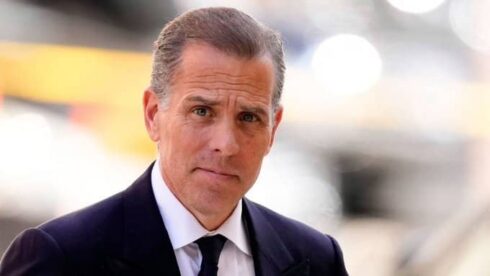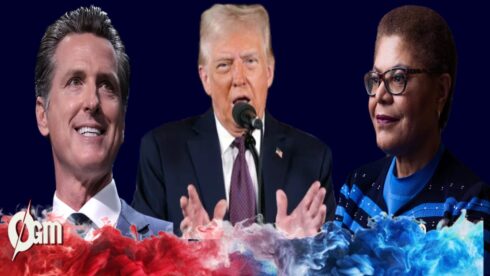President Joe Biden’s unexpected pardon of his son, Hunter Biden, has ignited a fierce political debate, with the White House vigorously defending the executive action. Press Secretary Karine Jean-Pierre revealed that Biden wrestled with the decision during the family’s Thanksgiving break, ultimately concluding that raw political motivations had unfairly targeted his son. The sweeping pardon covers potential federal crimes committed between January 2014 and December 2024, a period encompassing Hunter Biden’s controversial business dealings and legal challenges.
The presidential clemency comes after Hunter Biden’s criminal convictions, including a June jury verdict finding him guilty of three charges for falsifying information on a firearm purchase form and September federal tax charges. The White House argues that the pardon shields Hunter from potential persecution, emphasizing that the prosecution was politically motivated rather than a genuine pursuit of justice.
Legal Landscape: Conviction and Controversy
Hunter Biden’s legal troubles reached a critical point with two significant legal proceedings. In June, he became the first child of a sitting US president to be criminally convicted, facing charges related to falsifying information on a gun purchase application. Subsequently, in September, he pleaded guilty to federal tax charges involving tax evasion, failure to file returns, and submitting a false tax return.
Special Counsel David Weiss, overseeing the cases, has categorically rejected claims of selective prosecution. His team’s court filing explicitly stated that no evidence exists of vindictive targeting. However, the pardon’s broad scope extends beyond these specific convictions, covering potential federal crimes across a decade that notably includes his tenure on the Burisma board during his father’s vice presidency.
Political Fallout: Republican Criticism and Democratic Responses
The pardon has triggered a substantial political backlash, with Republican leaders vehemently condemning the action. Former President Donald Trump called it an “abuse and miscarriage of justice,” while House Speaker Mike Johnson claimed the move had “almost irreparably damaged” trust in the justice system. House Oversight Committee Chairman James Comer accused President Biden of lying about his family’s “corrupt influence peddling activities.”
Democratic responses have been more nuanced. While some, like Colorado Senator Michael Bennet, criticized the decision as prioritizing personal interest over duty, others like Texas Representative Jasmine Crockett defended the president. Crockett argued that Biden did what was right both as a father and a president, suggesting the prosecution was potentially exceptional in its approach.
Constitutional Power and Future Implications
The presidential pardon power remains absolute, a constitutional provision that prevents incoming administrations from rescinding such clemency. Legal experts like former federal prosecutor Neama Rahmani note that even if Trump takes office in January, he cannot overturn Biden’s pardon. First Lady Jill Biden has publicly supported the decision, underlining the family’s unified stance.
The pardon’s broader implications extend beyond Hunter Biden’s individual case. It raises critical questions about the intersection of familial loyalty, presidential authority, and the perception of justice in high-profile political scenarios. As the debate continues, the Biden administration maintains that the pardon represents a necessary corrective action against what they perceive as politically motivated prosecution.
Legal Experts Weigh In on the Implications of the Hunter Biden Pardon
While the president’s power to pardon is constitutionally absolute, legal experts and former prosecutors have weighed in on the broader implications of Biden’s decision. David Weiss, the special counsel overseeing Hunter’s cases, firmly denied allegations of selective prosecution, stating, “There was no evidence of vindictive or selective prosecution.”
However, Neama Rahmani, a former federal prosecutor, accused Biden of misleading the public. “A pardon was always the plan, but President Biden misled the American people to maintain his and Kamala Harris’s election prospects,” Rahmani claimed. He added that the pardon is irreversible and immune to challenges from the incoming Trump administration.
As the controversy continues to unfold, the pardon raises critical questions about the intersection of family, politics, and the justice system, setting the stage for heated debates in the months to come.














